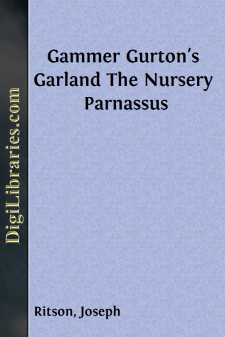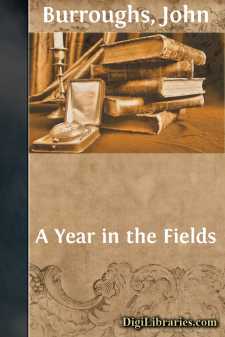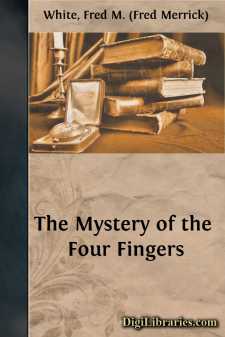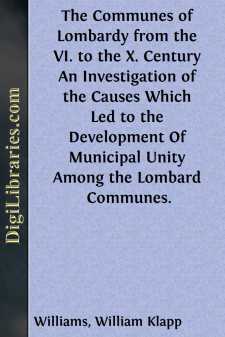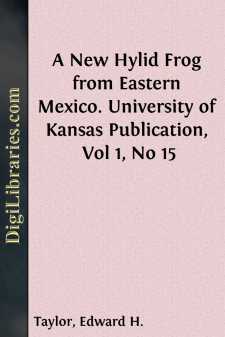Fiction
- Action & Adventure 180
- Biographical 15
- Christian 59
- Classics
- Coming of Age 5
- Contemporary Women 3
- Erotica 8
- Espionage/Intrigue 12
- Fairy Tales, Folklore & Mythology 236
- Family Life 169
- Fantasy 117
- Gay 1
- General 596
- Ghost 32
- Historical 808
- Horror 43
- Humorous 160
- Jewish 25
- Legal 4
- Medical 22
- Mystery & Detective 315
- Political 49
- Psychological 41
- Religious 64
- Romance 159
- Sagas 11
- Science Fiction 730
- Sea Stories 113
- Short Stories (single author) 537
- Sports 10
- Suspense 1
- Technological 8
- Thrillers 2
- Urban Life 31
- Visionary & Metaphysical 1
- War & Military 173
- Westerns 199
Classics Books
Sort by:
by:
Joseph Ritson
THE FROG AND MOUSE.There was a frog liv'd in a well,Kitty alone, Kitty alone;There was a frog liv'd in a well,Kitty alone and I.There was a frog liv'd in a well,And a farce mouse in a mill.Cock me cary, Kitty alone,Kitty alone and I.This frog he would a wooing ride,Kitty alone, etc.This frog he would a wooing ride,And on a snail he got astride.Cock me cary, etc.He rode till he came to my...
more...
by:
Thomas Otway
ACT THE FIRST. SCENE I. A GARDEN.Enter Castalio, Polydore, and Page.Cas.Polydore, our sportHas been to-day much better for the danger:When on the brink the foaming boar I met,And in his side thought to have lodg'd my spear,The desperate savage rush'd within my force,And bore me headlong with him down the rock.Pol.But then——Cas.Ay, then, my brother, my friend, Polydore,Like Perseus mounted...
more...
CHAPTER I INTRODUCING THE PRINCIPAL CHARACTERS "If I'm not mistaken," said Calvin Parks, "this is the ro'd where Sam and Sim used to live!" He checked his horse and looked about him. "And there—well, I'm blowed if that ain't the house now. Same old pumpkin-color; same old well-sweep; same old trees; it certinly is the house. Well!" He looked earnestly at...
more...
by:
John Burroughs
In the town of Roxbury, among the western Catskills, was born April 3, 1837, John Burroughs. The house in which he first saw the light was an unpainted, squarish structure, only a single story high, with a big chimney in the middle. This house was removed a few years later, and a better and somewhat larger one, which still stands, was built in its place. The situation is very pleasing. Roundabout is a...
more...
INTRODUCTION There are many thrilling incidents—all the more attractive because of their truth—in the study, the trials, the disappointments, the obstacles overcome, and the final triumph of the successful inventor. Every great invention, afterward marvelled at, was first derided. Each great inventor, after solving problems in mechanics or chemistry, had to face the jeers of the incredulous. The...
more...
by:
Boyd Ellanby
The door-knob turned, then rattled. Dr. David Wong stepped out from behind the large bookcase, listening. He pressed the brass handle of the top shelf and the case silently pivoted back to become part of the wall, obliterating the dark passage behind it. An imperative knocking began at the door; David walked softly to his desk and picked up his notebook. He tried to remain relaxed, but he could feel...
more...
CHAPTER I THE BLACK PATCH Considering it was nearly the height of the London winter season, the Great Empire Hotel was not unusually crowded. This might perhaps have been owing to the fact that two or three of the finest suites of rooms in the building had been engaged by Mark Fenwick, who was popularly supposed to be the last thing in the way of American multi-millionaires. No one knew precisely who...
more...
CHAPTER I. "Puir wee lassie, ye hae a waesome welcome to a waesome warld!" Such was the first greeting ever received by my heroine, Olive Rothesay. However, she would be then entitled neither a heroine nor even "Olive Rothesay," being a small nameless concretion of humanity, in colour and consistency strongly resembling the "red earth," whence was taken the father of all...
more...
THE LOMBARD CONQUEST AND ITS RESULTS. Before tracing the beginnings of renewed municipal life in Northern Italy, we must consider the conditions of land and people, which first rendered possible and then fostered the spirit of local independence of which such beginnings were the natural expression. To do this we must commence our researches with the first domination of the Lombards in the country. In...
more...
by:
Edward H. Taylor
A small collection of Mexican reptiles and amphibians recently acquired by the University of Kansas Natural History Museum contains five specimens of a species of the genus Hyla (sensu lato) which is here described as new. Hyla proboscidea sp. nov. Type.—University of Kansas Museum of Natural History, No. 23626, collected 2 km. west of Jico, Veracruz, Mexico, at an elevation of 4,200 ft., Oct. 28,...
more...


